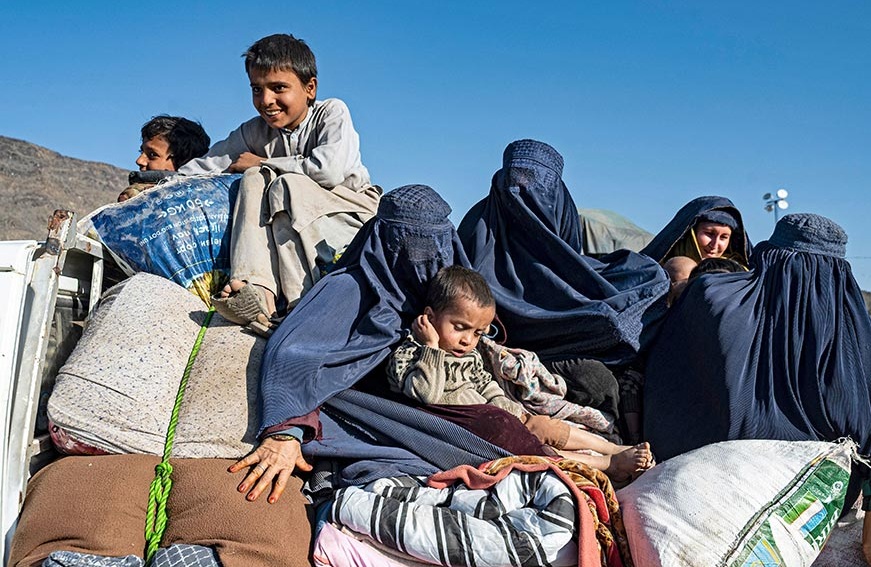A federal appeals court has temporarily extended the Temporary Protected Status (TPS) of nearly 12,000 Afghans residing in the United States, granting a last-minute reprieve just hours before their legal protections were set to expire.
The decision, issued on Monday by the U.S. Court of Appeals for the Fourth Circuit in Richmond, Virginia, comes 60 days after the Department of Homeland Security (DHS), under former President Donald Trump, announced the termination of TPS for Afghans.
The court’s administrative stay halts the end of the program temporarily, following an emergency request from the immigration advocacy organization CASA.
Though the court did not specify its reasoning for the stay, it made clear that it intends to issue a ruling quickly.
CASA’s petition highlighted that the scheduled termination of protections would result in severe and irreversible harm for thousands of Afghan nationals.
It also raised similar concerns for Cameroonians, whose TPS is set to expire on August 4.
The organization contended in court filings that DHS’s move to rescind the status was both arbitrary and discriminatory.
The court has now requested briefs from both parties this week.
The Trump administration has been given a deadline of Wednesday at 11:59 p.m. Eastern time (03:59 GMT Thursday) to respond.
Although a federal judge permitted CASA’s broader legal challenge to proceed on Friday, the judge declined to issue an injunction that would keep the protections active during the lawsuit.
The appeals court’s stay does not amount to a final ruling but provides additional time for the legal process to unfold.
Shawn VanDiver, founder of AfghanEvac, a major coalition of U.S. military veterans and advocacy groups working to assist Afghan refugees, welcomed the court’s temporary intervention.
“AfghanEvac fully supports the legal effort and urges DHS and the Trump administration to reverse their course and reinstate TPS for Afghans immediately,” VanDiver said in a statement to Reuters.
TPS grants recipients the right to live and work legally in the United States and protects them from deportation.
Since the Taliban’s return to power in Afghanistan in 2021 following the U.S. military withdrawal, over 180,000 Afghans have arrived in the United States, and approximately 11,700 of them currently benefit from TPS.
However, the DHS, under Secretary Kristi Noem, stated in May that conditions in Afghanistan had improved to the extent that returning Afghan nationals would not face serious danger.
The agency claimed there were “notable improvements in the security and economic situation.”
It suggested that ongoing armed conflict or other temporary extraordinary conditions no longer justified TPS for Afghans.
Human rights advocates strongly disagree with this assessment.
Many warn that Afghans who aided the U.S. during its 20-year military engagement would be specifically targeted by the Taliban if repatriated.
Women’s rights organizations have raised particular concern for Afghan women, citing the Taliban’s systematic rollback of women’s rights since reclaiming control.
Just last week, the International Criminal Court (ICC) issued arrest warrants for two senior Taliban officials, accusing them of widespread gender-based abuses.
The ICC stated that the Taliban had imposed strict restrictions on women and girls “by reason of their gender,” effectively stripping them of basic freedoms and rights.
TPS is granted at the discretion of the Secretary of Homeland Security to nationals from countries experiencing conditions such as ongoing conflict, environmental disaster, or other extraordinary circumstances.
Currently, the United States extends TPS to individuals from countries including Afghanistan, Myanmar, Haiti, Ukraine, Venezuela, and others.
In addition to Afghanistan and Cameroon, the Trump-era DHS decisions have targeted TPS termination for over 260,000 Haitians and 350,000 Venezuelans.
The administration has also announced plans to end two-year “humanitarian parole” protections for around 530,000 individuals.
These include Cubans, Haitians, Nicaraguans, and Venezuelans.
As the legal battle continues, the fate of thousands of Afghans remains uncertain, hinging on the courts’ final decisions and the federal government’s next move regarding their protected status in the United States.



